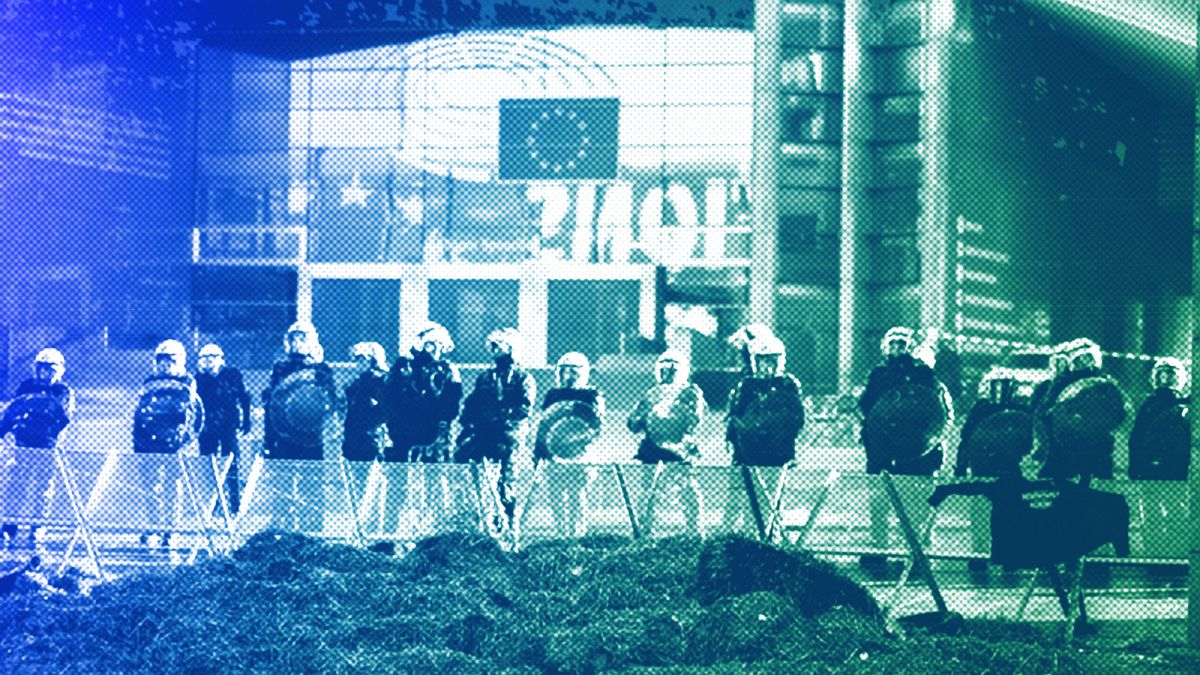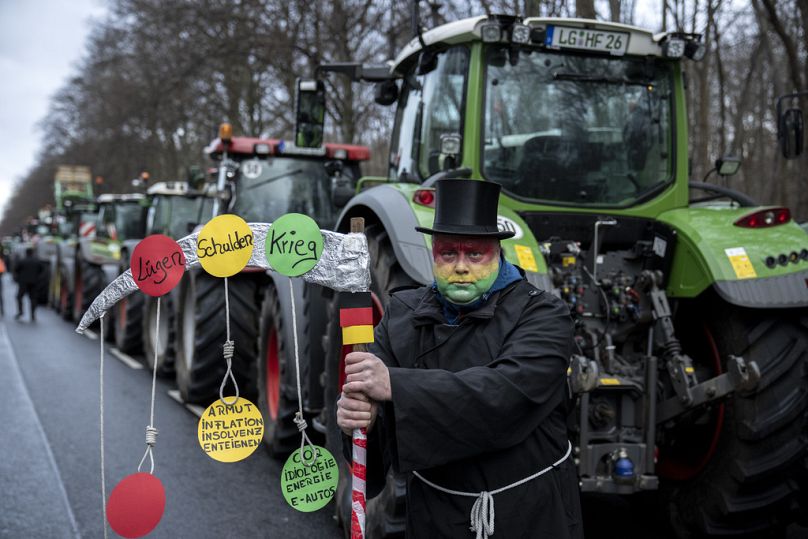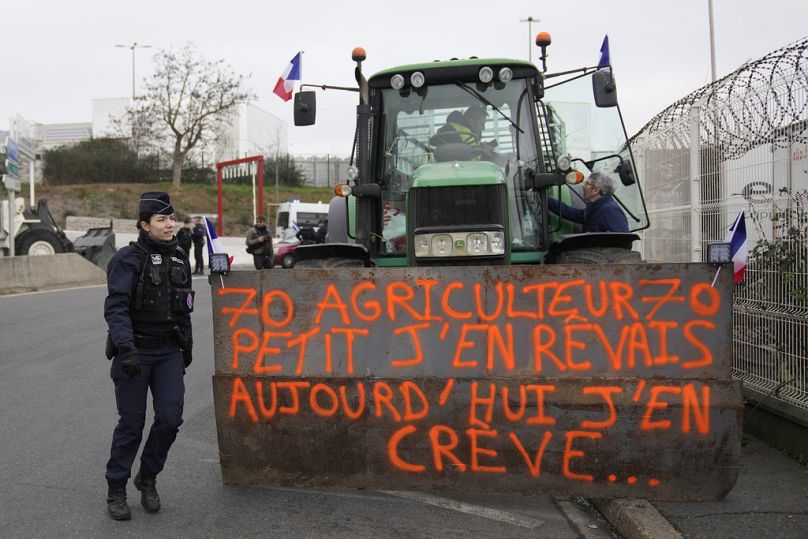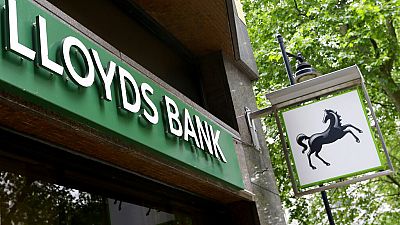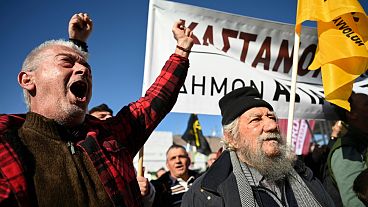The demonstrations have the potential to not only cause the decline of the national economic landscape but also to impact the economy at the EU level, Osama Rizvi writes.
In recent months, farmers' protests have swept across Europe, culminating in a fiery standoff in Brussels amid last week's EU summit.
For many Europeans, it is still unclear when and where it all started.
The history of the current protests can be traced back to the 2019 Green Deal, which involved significant alterations to achieve climate neutrality. The purpose of the deal was to decarbonise and digitalise Europe's economy. It suggested some serious alterations to the EU's policies to achieve climate neutrality by 2050.
However, the policymakers failed to include what is called second-order thinking, or rather, its impact on farmers. The ongoing turmoil has converged with a slowdown in all the major economies of Europe creating the foundations of a mega-crisis.
Among many of the proposed strategies, the Farm to Fork strategy introduced two key targets related to the agricultural sector of Europe to cut pesticide and fertiliser use by 50, and make 25% of farming organic by 2030.
Owing to the existential threat caused by environmental degradation, the European Green Deal still aims to ensure the sustainability of biodiversity and ecosystems.
Recent developments
In November last year, EU politicians discarded the proposed bill on sustainable use of pesticides, which was one of the eminent clauses of the "Farm to Fork" strategy. Although the bill was aimed at promoting the organic agricultural setup, it failed to see the light of day.
The backlash came not only from the farmers but also the right-wing politicians who believed that the bill could lead to a negative impact on crop yields, thus disrupting food production. The main agricultural group of the EU, COPA-COGECA, criticised the bill.
"Let's not forget that this proposal was ideological from the outset, with no connection to the realities of agriculture, proposing unrealistic transitions without the necessary funding," COPA-COGECA said.
"Let’s not forget that all this polarisation could have been avoided and solutions found without the ideological obstinacy of a few decision-makers."
In many parts of Europe, the protests have escalated into roadblocks, reflecting the anger over the rising prices, low wages and the EU's environmental regulations. The competition in the local food industry is further worsening the situation, leaving little hope for the farmers.
The signs at the protest were indicative of the farmers' ever-increasing ire. "When farmers are ruined, food has to be imported," one banner stated. Another sign said: "No farmer, no food, no future."
The plight of farmers is not just linked to the specific state policy measures but is also an attempt to defy the EU's environmental regulations and sustainability vision related to the coming times.
The agricultural workers in Germany are protesting against the government's plan to cut diesel subsidies; the farmers in France are protesting against the excessive regulations in terms of their agricultural activities; their peers in the Netherlands are protesting against the government's environmental plans, aimed at reducing livestock population to cut down emissions.
Impact of protests on Europe's economy
This commotion has the potential to not only disrupt the agricultural set-up of the region but also to disturb the transport sector responsible for delivering various goods, hence halting the overall supply chain and affecting the regional economy at large.
The aggressive demonstrations, clashes with police, nationwide shutdowns, gridlocks on roads and mass protests will have grave repercussions on the trade and manufacturing sector as well.
In addition, the farmers are now targeting the port areas to disrupt logistics infrastructure, impacting port activities. Recently, during one of the protests in Belgium, the port of Zeebrugge was blocked by farmers for up to 36 hours as part of the wider European demonstrations.
In the summer and autumn of last year, Europe had to grapple with extensive damage to forests and crops due to floods and wildfires. Consequently, many farmers lost their livestock and crops and suffered serious financial losses.
Before Europe had a chance to recover from the economic repercussions, the farmers' actions further compounded the problems by burdening individual countries' economic infrastructure and minimising the possibility of the agricultural infrastructure's recovery.
The demonstrations have the potential to not only cause the decline of the national economic landscape but also to impact the economy at the EU level.
To bridge the gap, the EU needs to come to an agreement to ensure fair prices for the farmers so that the transition to a green economy is smooth and steady.
Bearing in mind international competition, the farmers need to be given fair income security so that they, too, can benefit from the vision of the EU's Green Deal.
Osama Rizvi is an economic and energy analyst with a focus on commodities, macroeconomy, geopolitics, and climate change.
At Euronews, we believe all views matter. Contact us at view@euronews.com to send pitches or submissions and be part of the conversation.
